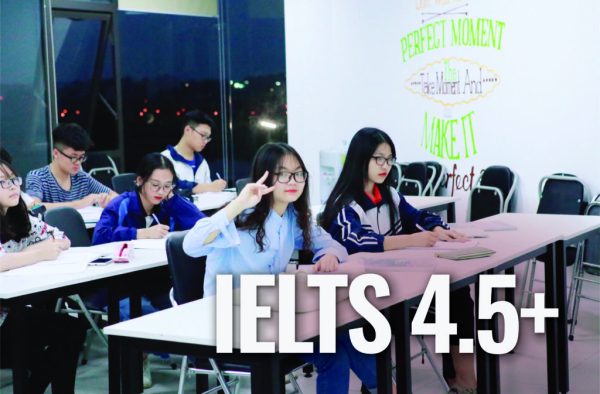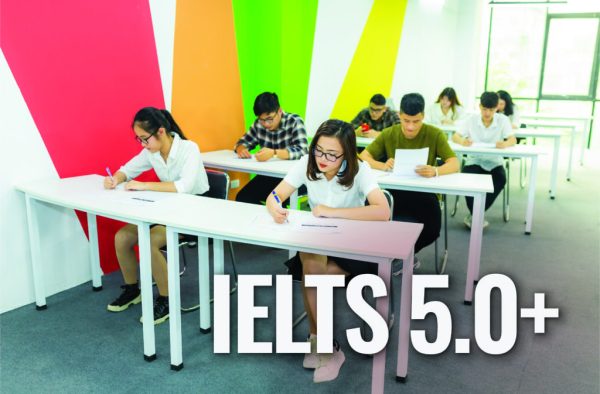Nhận tư vấn về lộ trình học
Giải đề Speaking dự đoán 2023 chủ đề Speaking Part 3. Complaint
24 Tháng Năm, 2023 | 310 lượt xem
Bộ đề IELTS Speaking dự đoán 2023 với hơn 50 chủ đề và câu trả lời mẫu giúp các bạn tăng cơ hội đạt IELTS Speaking 7 +. Rất nhiều chủ đề sẽ được lặp lại từ quý này sang quý khác. Universal Language Center tặng bạn câu trả lời mẫu IELTS speaking band 7+ với các cụm từ dễ nhớ nhất, dễ thuộc nhất và 01 thành ngữ ăn điểm với từng chủ đề IELTS Speaking Forecast.
Bí quyết luyện IELTS speaking hiệu quả:
Bước 1. Đọc câu trả lời mẫu
Bước 2. Ghi chú các cụm từ và thành ngữ
Bước 3. Quay video tự nói theo cách riêng của mình sử dụng các từ vựng đã note
Bước 4. Xem lại video và sửa các lỗi cần thiết
IELTS SPEAKING FORECAST CHỦ ĐỀ SPEAKING PART 3. COMPLAINT
1. When are people more likely to make complaints?
We complain for a variety of reasons in all kinds of situations. Most of the time, venting can be a way to manage emotions. If someone is suffering from something, he or she may complain to lessen the severity of the feeling. Also, there are those who complain because of social factors. When being around people who tend to complain a lot, a person is more likely to air his own grievances. In this case, shared complaining serves as a form of social bonding.
- vent: bộc lộ cảm xúc tiêu cực
- manage emotions: quản lý cảm xúc
- air his own grievances: bộc lộ sự bất bình của chính mình
- social bonding: gắn kết xã hội, kết nối xã giao

2. What do people often complain about?
Everything from poor customer service to product defects to delayed delivery can be complained about. However, I’d say dissatisfaction with the weather dominates my neighborhood. My friends and family complain almost every day about how humid it is in summer and how chilly it is during winter.
- poor customer service: dịch vụ chăm sóc khách hàng kém
- product defects: lỗi hàng hóa
- delayed delivery : giao hàng chậm trễ
3. Which one is better when making a complaint, by talking or by writing?
Making a complaint can be done either verbally or in writing, depending on the situation. Having a conversation allows for immediate communication and potential resolution, as it allows for direct interaction and clarification. Putting it in writing, like an email or formal letter, can provide a documented record of the complaint and allow for a more detailed and structured explanation. In my opinion, both methods can be effective, and the choice may depend on the nature of the complaint and individual communication style.
- verbally : bằng lời nói
- immediate communication: giao tiếp tức thì
- direct interaction: tương tác trực tiếp
- documented record: ghi chép chứng cứ
- detailed and structured explanation: giải thích cụ thể và chi tiết

4. Who is more likely to make complaints, older people or younger people?
When it comes to complaining, I reckon it is more related to personality traits, values, and perspectives than age. While the elderly are commonly said to have a higher tendency to express their dissatisfaction due to their life experiences and expectations, younger people, especially those who are more vocal and assertive, may also actively voice their complaints.
- personality traits, values, and perspectives : đặc điểm tính cách, giá trị và quan điểm
- tendency: xu hướng
- vocal and assertive: mạnh mẽ và quyết đoán
5. How would you react if you received poor service at a restaurant?
I’d react differently if I were dissatisfied depending on the circumstances. In general, I would remain calm and respectful while communicating my concerns to the staff or manager of the restaurant. I would explain the issues I experienced and express my disappointment, giving them an opportunity to address the situation. It is essential to provide constructive feedback and give the establishment a chance to rectify the problem before considering further action or escalation.
- remain calm and respectful: giữ bình tĩnh và tôn trọng
- address the situation : xử lý tình huống
- considering further action or escalation: đẩy sự việc lên mức trầm trọng

6. How do people often respond to poor customer service?
Customers’ reactions can vary. Some may immediately voice their complaints, seeking resolution and expressing their dissatisfaction with the aim of receiving compensation. Others may choose to discontinue their business relationship with the company and share their negative experience with others through reviews or by word-of-mouth. Some individuals may escalate the complaint to higher management or regulatory authorities if they believe their concerns have not been adequately addressed. Ultimately, the response to poor customer service depends on the individual’s personality and desired outcome.
- Customers’ reactions: phản ứng của khách hàng
- Compensation: sự bồi thường
- By word-of-mouth (idiom): truyền miệng
- Desired outcome: kết quả kỳ vọng
Tìm hiểu ngay lớp luyện thi IELTS Hà Nội hoàn toàn miễn phí tại Universal Language Center: http://m.me/universal.edu.vn/
Chúc các bạn luyện thi IELTS hiệu quả và sớm đạt IELTS Speaking 7 +!
ĐĂNG KÝ NHẬN TIN






